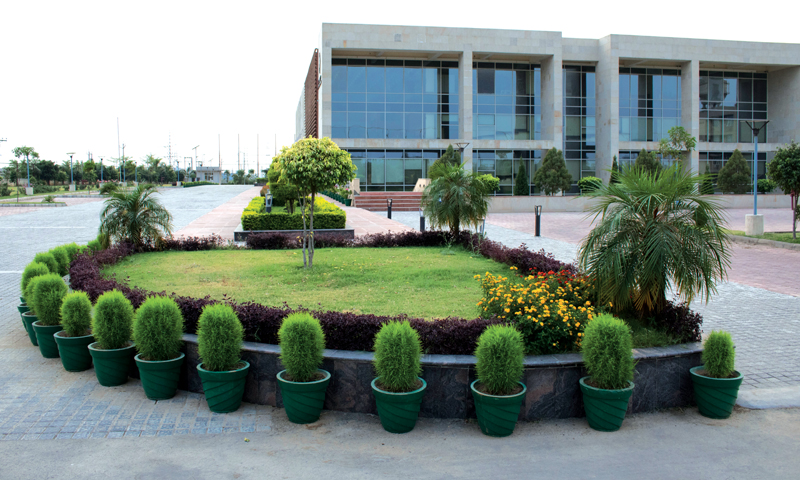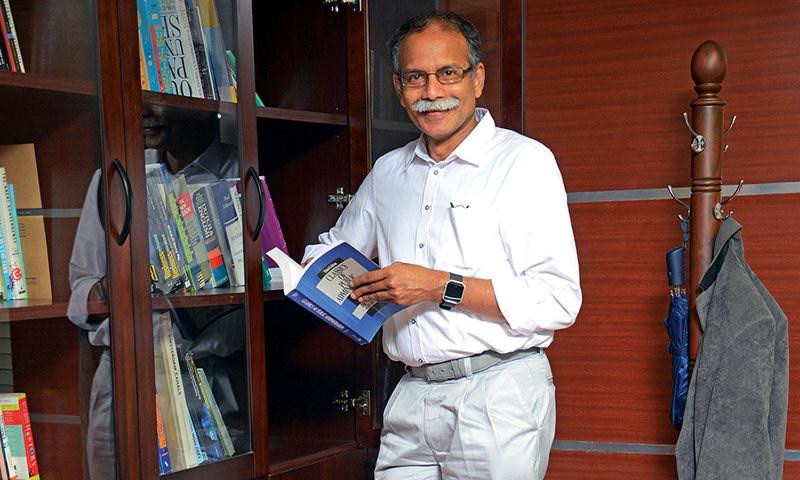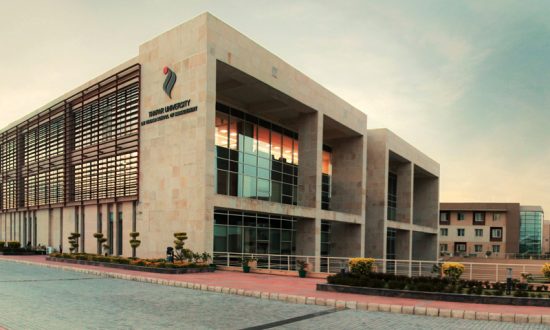Under the flagship of Thapar Institute of Engineering and Technology (Deemed-to be-University), a 61-year-old academic institution, LM Thapar School of Management (LMTSM) was established in 2007 in the erstwhile princely state of Patiala, Punjab. As a business education pioneer in Northern India, the institute transforms graduates into professionals with a unique platform of global exposure with experiential learning.
The current management education system in India was designed when standardized learning and testing aimed to prepare young people to succeed in standardized jobs and homogeneous communities. Considering that the world is becoming more interconnected and interdependent, this outdated system will not be able to prepare all students for success. With an excellent education approach that goes beyond global awareness, LM Thapar School of Management (LMTSM) is ready to take up that challenges of the modern world. The institute courageously stands not only to change the way world conducts business, but also the way business schools engage the world.
“We are convinced that creating a new world business order must start at home and an old nation like India is the right place to start this revolution. We have collaborated with many international universities in this regards to give our students a global-edge over others,” Dr. Padmakumar Nair, Director of LMTSM, who is enriched with an experience of more than 32 years and formerly worked as Clinical Professor and Academic Director at The Leadership Center, SOM, University of Texas, Dallas. LMTSM has active collaborations with universities in countries such as the US, Netherlands, Italy, Malta (EU), Austria, Denmark, Ireland and Israel, which help them to remain at the forefront of global management practice and provide global exposure to the students and faculty.
“At LMTSM, we practice a strong collaborative culture with our partner universities which helps facilitate development of joint academic programs, collaborative research and student and academic staff exchange. It offers our graduates an opportunity to undergo internships and scholastic programs at various foreign universities,” adds Dr. Padmakumar. LMTSM’s global initiatives like the Global Immersion Program is another feather in its cap, which gives its graduates a unique opportunity for summer internship outside India. Along with exposure to business and markets in a different country, this provides a window to the host country’s culture as well.

At present, LMTSM has nine academic units with six centers-of-excellence. In addition to the core courses and doctoral programs, there are various open electives which are offered to students catering to the dynamic business trends. “The centers-of-excellence are established with a view to strengthening teaching, research, consulting and community engagement. Each center is created around a contemporary management theme with the primary goal of creating, disseminating and applying knowledge,” pinpoints Dr. Padmakumar. At LMTSM, all faculty members of the school have at least one primary affiliation and multiple secondary affiliations to various centers. Indeed, these centers are interdisciplinary abode for collaboration among faculty, scholars, students and industry for research and interaction through seminars, workshops, projects, conferences, conclaves, summits, student competitions, and development and training programs.
On the other side, LMTSM aspires to nurture and develop GLOCAL graduates – MBA Graduates who appreciate the interconnections between global and local issues. Dr. Padmakumar shares, “We strongly believes in and practices sustainability. For really infusing the philosophy of sustainability in students and society, we have introduced a Year-long course on sustainability in our MBA Program.” The course named Sustainability-In-Practice is a cross-year team-based course and runs for two semesters. It focuses on the interdisciplinary aspects related to sustainability such as Energy, Environment, Ethics, Economics, and use of Natural Resources. “The course exposes students to the challenges of human existence and then focuses on developing sustainable solutions. In teams, students design and execute real-life projects which are topical and relevant to businesses’ and society,” adds Dr. Padmakumar.
With the successful implementation of groundbreaking ideas in the management educations sector, over the years, the brand ‘Thapar’ has created a niche for itself in the business world. This has resulted in best organizations offering challenging profiles to our students through the campus placement process. “Our graduates are known for their disciplined approach and strong fundamentals. The unique ‘Thapar’ culture is such that it invigorates the students’ passion for achieving excellence in everything they do,” opines Dr. Padmakumar. In fact, Thapar students are always eager to take up bold tasks, create new benchmarks and be the first to respond to the needs of the society. “In would where most of the jobs are replaced by intelligent systems, we want to prepare our students for the Industrial Revolution 4.0. This year, we are starting new MBA in Business Analytics and Big Data. We also want to uberize our business school by digitizing and automating the functions to get the optimum results,” concludes Dr. Padmakumar.

Dr. Padmakumar Nair, Director
Dr. Padmakumar Nair, prior to his current position as the Director & Dean at LM Thapar School of Management, has been a Clinical Professor of organisation, strategy and international management and the Academic Director of the Leadership Centre at the University of Texas, Dallas, USA. Having worked both in academia and industry, he has an illustrious experience of over 32 years in diverse industries from oil and gas (Shell in Amsterdam) and education (Denmark, US, Japan, Netherlands, China) to consultancy (Price Waterhouse Coopers, Japan, UK and US) and advanced R&D (Netherlands, Japan and US). Dr. Padmakumar specializes in organizational leadership, entrepreneurship and nanotechnology and is a visiting scholar at the University of Cambridge (UK), University of Twente (Netherlands), Chonnam National University (South Korea) and Wuhan University (China).




